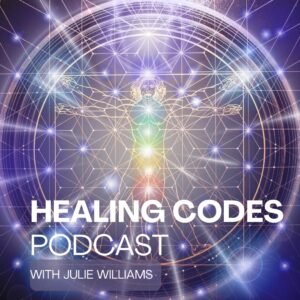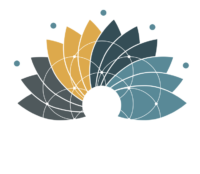

Key Topics include:
- Why excessive immediate gratification behaviours can lead to burnout.
- What causes burnout, and how it can be healed and prevented.
- Burnout from the classical medical perspective compared to a holistic approach.
- The importance of self-care to de-stress.
- The connection between stress, burnout and dopamine.
- A self-care practice to use when you feel stressed.
Burnout is one of the most common symptoms that indicate the dopamine pathways are out of balance. Feelings of being unmotivated, lacking creativity, fatigue, mood swings, and low libido are all associated with burnout.
From a scientific perspective, dopamine is linked to your brain’s reward system. When you feel pleasure your body’s biochemistry adjusts to continue this behavior. Pleasure-seeking that has a healthy mix of long and short-term rewards helps keep your body’s biochemistry functioning optimally letting dopamine do the job it was designed to do.
If there is an excess of immediate gratification-seeking behaviours that often do not bring a long-term positive effect, then our body becomes wired to continue to seek these short-term dopamine hits. Leading to becoming desensitized to dopamine’s positive effects which is connected to our felt experiences of burnout.
When we are burnt out, what is happening inside is that your system has become desensitized to the positive effects of dopamine. To a point where the rewards can no longer be felt and life feels dull, unmotivating and uninteresting. This is why a 2-week holiday makes little difference, because the circuits of the body have become mis-wired, and this takes time to rewire. But once you’re there, this positive rewiring will help prevent burnout from happening again.
If you’ve been listening to this series, you’ve learned some ways to make simple changes in life to allow your dopamine system to re-balance and life becomes a creative, joyous and rewarding experience. Things like cutting back on overstimulating behaviours, and adding in long-term reward activities like exercise and meaningful relationships.
You’ve also explored what these short-term-reward behaviors might been seeking to distract you from. And you’ve gained skills to stay present in this discomfort in an empowered way. You’ve also opened up your creative channels for valuable behaviours you can substitute when you get triggered. You can catch up on the series with Dopamine Detox and Reclaim Your Joy.
I want to look at things from the perspective of burnout in this episode since it is something we can all identify with. I’ve personally had two major bouts with burnout in my life, and both of them changed the trajectory of my life in really positive ways.
Before getting to this point, I had to change a few important things. I had to start paying attention to stress on all levels of being, not just a physically demanding schedule or stressful job. I had also to clear the deeper emotional and ancestral imprints that created stress in my energy, emotional and ancestral bodies.
Once I did this, I was able to recognise the signs of burnout more quickly and pivot my behaviours or lifestyle to bring in greater support through self-care practices like a daily walk in nature, regular weekly yoga and breathwork practices, connecting with positive people, creating obtainable goals and celebrating resulting achievements. I also, for example. became more mindful of my screen time and scheduled in regular digital detox times into my week. Prioritising a regular sleep schedule and a plant-based diet helped me shift out of the burnout pattern too. All of these things help to rewire a tired and burnt-out brain to activate its dopamine systems to feel joy, harmony and motivation.
From a dopamine perspective, self-care helps keep our systems healthy by providing a balance of short and long-term rewards. If you get a massage, for example, you enjoy the sensory experience at the moment, and then you also feel the reward for a few days perhaps of relaxation, calm, and pain-free. This allows your dopamine pathways to normalize.
Self-care is often overlooked or pushed to the side when we get busy. And being busy is a precursor to burnout. If you feel like you are too busy in your life to take time for yourself on a daily basis to breathe, stretch, meditate, be still, and commune with nature then you are at risk for the crash of burnout.
Committing to a consistent self-care routine is one of the best ways to re-balance your dopamine systems to normalize the regulation of your reward and pleasure centres. This is also essential to bouncing back from burnout and to prevent it from happening in the future.
Now that you know dopamine’s role in breaking the cycle of burnout, I want to dive more deeply into the idea of burnout from a whole-person perspective with the practice of Consciousness Medicine. This is a practice I’ve developed by weaving together my scientific background and complementary medicine training to use the power of consciousness to transform, heal and manifest.
Statistics show that 50% of workers worldwide report experiencing burnout symptoms that hinder performance and productivity. Women are more likely to experience burnout than men, especially those in leadership roles. Interestingly, remote and hybrid workers often feel more burnout due to blurred boundaries between work and personal life.
So what do we mean when we say we’re burned out? And how can you tell if you are experiencing it?
Burnout from a conventional medical and psychological standpoint, is considered a syndrome of chronic stress. The World Health Organisation (WHO) characterizes it as emotional exhaustion, feeling drained or physically or emotionally depleted. Developing a cynical or detached attitude towards one’s job or colleagues, which is called depersonalization. And reduced efficacy with feelings of incompetence or unaccomplished tasks. It is often linked to external factors such as workload, workplace culture or work-life balance conflicts. While it is not a medical condition, it is linked to other diagnosable conditions like depression anxiety or sleep disorders.
From a holistic and natural health perspective, burnout is regarded as a mind-body imbalance resulting from the overextension of mental, emotional and physical resources. The treatment focus is on addressing the interconnectedness of lifestyle, emotions and energy. Burnout is seen as a depletion of vital life force energy that is influenced by lifestyle imbalances, lack of purpose, suppressed emotions and spiritual disconnect.
This is a great example of how broader terms used to describe conditions are usually comprised of a complex set of factors that must be addressed in order to promote lasting change. This makes it more difficult to find a one-size-fits-all solution since there can be an infinite number of combinations of contributing factors throughout the population. Research shows that the most common factor that leads to burnout for most people is stress.
Stress itself is a complicated animal. I even did a series of episodes to talk about it. You can check these out here: Daily De-Stress, Radiating Resilience, Revising Subconscious Stress and Stress Survival Guide.
We experience stress across our body matrix. Physically with muscle tension, fatigue, overactive nervous system, neurochemistry. These are the most common ways stress is assessed and treated. Next, we can have emotional stress if you’re carrying unresolved trauma or emotions from the past. This puts a strain on our mental health as well.
Energetic stress comes from living in an environment or with people you do not resonate with and experience a lot of drama. This depletes our energy body, stressing the system to keep up. Old emotions become stored in the chakra system of the body and can deplete certain energy centres that alter your vibrational health.
We can also experience energetic stress from not setting clear boundaries which causes emotional stress in dealing with the fallout. Ancestral stress comes from the pressure in your family soul caused by inherited suffering. Spiritual stress comes from not having regular spiritual practice.
This is why changing only a habit of cutting back on work hours may do little to release the deeper sources of stress.
As we get older, unresolved emotional, energetic, ancestral, physical and spiritual stress creates more stress. This becomes habituated and worsens over time to become a chronic condition. Chronic conditions are those that have integrated into our daily schedule, even if they are not supporting our well-being. It is simply a biochemical loop that runs on autopilot until we break the cycle.
If the cycle continues over time, we become more and more depleted until our physical bodies force us to stop through illness. The intended positive outcome for your physical body to get sick is to rest. Your body has a deeper internal wisdom that cares for you when you stop taking care of yourself. But resting alone will not do the trick to beat burnout.
Taking a look at your values and purpose to see how aligned it is with where you work, the relationships you keep and the community you live in is important. This can mean facing some hard truths about yourself and others. While simultaneously creating new ways of being that support your truth, integrity and purpose. Finding these within yourself can sometimes be a challenge especially if you have never been allowed to prioritise your needs.
But I want you to know, that if you’re feeling burnt out or underwhelmed by life you can recover fully and build an energized, fulfilled and joyous life. It is your choice, and the first step is to add more self-care practices into your life. And see these as acts of self-love. Be uncompromising with these. They are as important as eating, drinking and sleeping.
Here’s a fun exercise to help you build your self-care routine.
Get a large jar or container. Take a stack of Post-it notes, or small pieces of paper and write one self-care example on the paper, fold it and put it in the container. Do this until you have a good number. And continue to add self-care tasks as you think of them. A great way to identify the self-care practices that work for you is to be mindful during your day for times when you feel relaxed, calm, energized, happy, loved, and safe. Notice what you’ve done to get here. Maybe you feel energized after taking a walk. Or are happy after spending time with friends. Or relaxed after expressing your creativity. Or feel content, safe and loved being in a place or with certain people. Catch yourself when you laugh or smile and notice what brought that about. You get the idea. Fill the jar (or make a list you can add to if you want to carry it with you). When you feel depleted, stressed or low choose and do as many things in the jar or on your list as needed to help elevate your body, mind and soul.
Tune in for the next blog as I’ll guide you on a meditation to integrate the healing benefits of this dopamine detox series.
You can enjoy listening to this article on a Healing Codes Podcast episode by clicking on the link below.
_____________
Find out more about Consciousness Medicine.
Upcoming courses, workshops and 1:1 sessions.
Sign up for my free e-newsletter from the homepage www.consciousness-medicine.com.
Stay Connected on Social Media:
Facebook: www.facebook.com/CentreforConsciousnessMedicine
Instagram: www.instagram.com/wellnesswisdomwithjulie
Linked In: www.linkedin.com/in/julie-williams-cxmed

